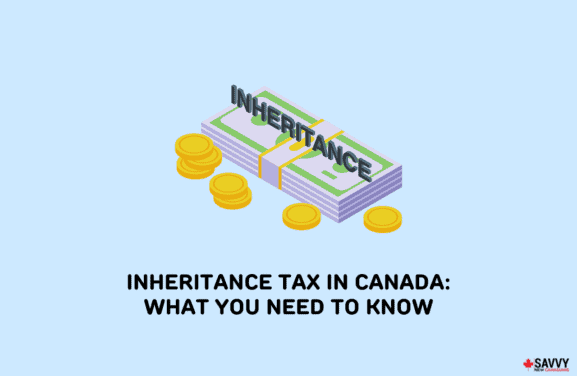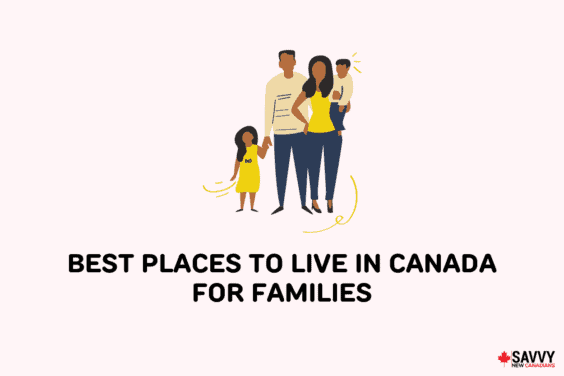Canada is known for its strong and stable economy, and one significant factor that contributes to this reputation is the income of its citizens.
In Canada, the top 1% of income earners earn at least $253,900. And, among the country’s provinces and territories, Ontario boasts the highest-earning top 1%, with an average income of $542,100.
This article covers everything you may want to know about the top 1% income in Canada, including which high-paying careers lead to such high earnings, what the top 1% income in each province is, and more.
Key Takeaways
- The top 1% of earners in Canada make at least $253,900 annually, with the top 5% making at least $132,300.
- These earners work in finance, management, or health sciences in cities like Toronto, Vancouver, and Calgary.
- Income inequality is an issue in Canada. The top 1 percent holds more wealth than the bottom 80 percent combined.
- The wealthiest households held more than two-thirds of all net worth in Canada.
What is the Top 1 Percent Income in Canada?
The top 1% of income earners in Canada are individuals who earn an annual income that places them in the top percentile of earners in the country.
According to Statistics Canada, the top 1% of income earners in Canada earned at least $253,900 in 2020. The top 5%, on the other hand, earns at least $132,300. This amount is significantly higher than the average Canadian income, which was around $54,200 in 2020.
How Much Do the Top 1% of Earners Make?
The top 1% of earners in Canada make a staggering amount of money. In addition to the minimum income threshold of $253,900, the average income of the top 1% of earners in Canada was around $512,000 in 2020.
This means that the top 1% earn nearly ten times more than the average Canadian.
Furthermore, the income gap between the top 1% and the rest of Canadians has been growing steadily over the past few decades.
According to a report by the Institute for Research on Public Policy, inequality in family market income increased substantially over a 35-year period.
What Jobs Do the Top 1% Have?
The top 1% of income earners in Canada come from a diverse range of professions. While some are business executives and entrepreneurs, others are medical professionals, software engineers, and other high-paying jobs.
According to Statistics Canada, the top 1% of income earners are typically found in fields such as technology and health-related professions.
Here are some of the highest-paying jobs in Canada:
| Job Title | National Average Salary | Job Description | Job Qualifications |
| Anesthesiologist | $358,908 per year | Specialist physician who keeps patients unconscious and safe during surgery; expert in anesthetic drugs and pain management | Medical degree, 5 years of residency program specializing in anesthesiology |
| Psychiatrist | $298,065 per year | Physician who specializes in mental health and mental health disorders; diagnoses, treats, and can prescribe medication | Medical degree, residency program focusing on mental health and mental health disorders |
| Cardiologist | $280,591 per year | Focuses on the heart and cardiovascular system; diagnoses, treats, and helps prevent cardiovascular diseases | Medical degree, 4-5 years of residency training, registration with the College of Physicians and Surgeons in the province or territory |
| Surgeon | $279,646 per year | Medical doctor who performs surgery on patients; also responsible for administrative duties such as post-surgery care | Medical degree, 4-5 years of residency, 2 years of studying a surgical specialty |
| Physician | $254,847 per year | Medical doctor who treats and diagnoses medical issues; can work in a family practice, hospital or specialized clinic | Medical degree, residency program |
| Orthodontist | $209,373 per year | Dentist who specializes in treating misaligned teeth; helps in prevention and diagnosis of misaligned bite patterns | Dentistry degree, specialty license, registration with the dental regulatory body |
| Software Engineering Manager | $143,044 per year | Leads development and creation of software programs or applications; point of contact for different departments to ensure qualifications are met | University degree in systems analysis, business administration, computer science, engineering or a related degree, management experience |
| Vice President | $135,578 per year | Key executive who helps run and manage an organization’s internal operations; works with other senior executives to identify and fix problems | Varies by industry, may require a four-year college degree or Master’s degree |
| Director of Information Technology | $117,890 per year | Oversees the information technology department of a company; develops strategies and implements new technology | Bachelor’s degree in computer science, information technology or a related field, several years of experience in IT management |
| Chief Marketing Officer | $109,196 per year | Oversees a company’s marketing strategies and initiatives; reduces costs and grows revenue through various strategies | University degree in marketing, communications, business administration or a related field, MBA |
Household Income in Canada by Percentile
In Canada, the household income percentile is calculated based on the combined income of all members of a household, also called a Census Family.
The household income in Canada varies significantly based on the percentile that a household falls under.
The average household net worth was $940,558 as of the second quarter of 2022. The wealthiest households (the top 20%) held more than two-thirds (67.1%) of all net worth in Canada.
Top 1% Income in Canada by Province
The income of the top 1% of earners in Canada varies significantly based on the province they live in. Using 2020 tax information, data has been collected to find out what the average income of the top 1% earners is in each province.
| Province | Average Income of the Top 1% Earners |
| Ontario | $542,100 |
| British Columbia | $512,900 |
| Quebec | $485,800 |
| Alberta | $482,500 |
| New Brunswick | $473,400 |
| Nova Scotia | $453,400 |
| Newfoundland and Labrador | $416,300 |
| Prince Edward Island | $380,900 |
| The Territories | $357,800 |
Top 1 Percent Income in Canada by City
In addition to the variation in income based on province, the income of the top 1% of earners in Canada also varies based on the city they live in.
Using 2020 tax information, Toronto had the highest concentration of top 1% income earners, with 80,425 individuals earning at least $253,900. Calgary and Vancouver were the second- and third-highest cities, with 23,465 and 28,120 individuals, respectively.
What is the Average Canadian Income?
While the top 1% of earners in Canada earn a significant amount of money, the average Canadian income is much lower.
In 2020, the average Canadian income was around $54,200 per year. This means that the top 1% of earners in Canada earn nearly ten times more than the average Canadian.
It’s worth noting that the average Canadian income can vary significantly depending on factors such as age, location, and industry.
For example, younger Canadians and those living in major urban centers tend to earn more than older Canadians and those living in rural areas.
Additionally, certain industries, such as technology and the health sciences, tend to pay higher salaries than others.
FAQs
In Canada, the top 5% of income earners earn at least $132,200 per year. The average income of this group is $238,500.
Individuals with a net worth of $1 million or higher are considered high-net-worth in Canada. Net worth is calculated as total assets less liabilities, like mortgages and other debt. But this amount can vary based on factors such as location and age.
In 2020, around 7.6% of Canadian tax filers reported an income of $150,000 or more. This equates to around 1,047,240 million individuals.
Yes, $200,000 is a good salary in Canada, considering that the average income was $54,200 in 2020. This salary represents almost four times the average income.
An annual income of $120,000 would place an individual in the top 10% of income earners in Canada. Most Canadians would consider this income to be high, and it would be enough to live a comfortable life.
Related:



